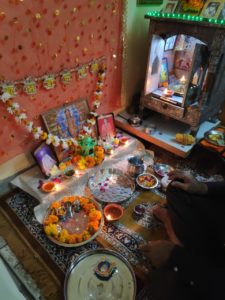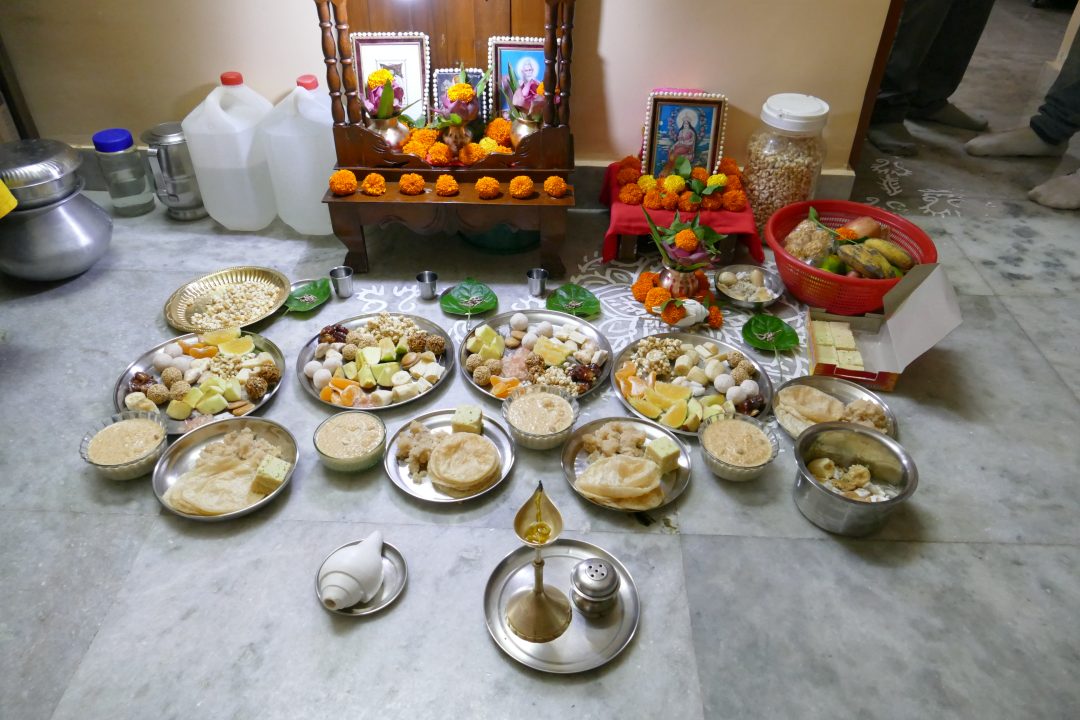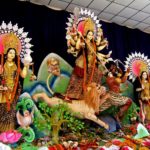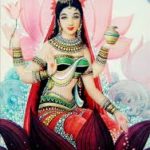Diwali is an important festival which is celebrated all over India, and by people of all religions in India. It is one of the only festivals, which transcends all religious beliefs. To many people, Diwali is a celebration and has become more of a custom, with the religion lost in the festivities and parties all over India.
Diwali’s deep religious significance.
To others, while also being a festival and a party, Diwali has a deeply religious significance. Diwali, known as the festival of lights is a religious prayer or pooja to the Goddess Lakshmi, for her to bless the people who pray to her with wealth and prosperity. Diwali was originally called “Deepavali” in Sanskrit, one of the original languages of India. Deepavali means, “a row of lights”, and indicates the row of lights placed before the Goddess Lakshmi in an effort to venerate her.
Laxmi or Lakshmi Pooja is an involved process done just after sunset on Diwali, the 3rd day of the 5 day long Diwali celebration. (Some say that Diwali is actually 6 days long. This holds true in some areas of India).
It is done after sunset.
The pooja is done to honor the goddess Lakshmi who is one of the most important Gods in the Hindu tradition. She is the Goddess of wealth, and prosperity, and emanates beauty, grace, and charm. She is often seen seated on a human-sized lotus flower.
 Lakshmi on this day is revered in her three forms: the MahaLakshmi, the MahaSaraswati, and the MahaKali. The pooja or poojan translates to mean worship. It is the worship of the Goddess Lakshmi. In our world today and as it was thousands of years ago, most people want an ample amount of money in order to live a secure, safe and comfortable life. Hindus worship the Goddess Lakshmi, as she is the embodiment of wealth and prosperity in our lives.
Lakshmi on this day is revered in her three forms: the MahaLakshmi, the MahaSaraswati, and the MahaKali. The pooja or poojan translates to mean worship. It is the worship of the Goddess Lakshmi. In our world today and as it was thousands of years ago, most people want an ample amount of money in order to live a secure, safe and comfortable life. Hindus worship the Goddess Lakshmi, as she is the embodiment of wealth and prosperity in our lives.
The pooja, as well as the preparation for the pooja, is done to please the Goddess and to invite her into the homes that are the cleanest and the most well lit. The idea is that she will visit only those homes and deliver her blessings of wealth, peace and prosperity to everyone in the household.
Many people go above and beyond, but buying new clothes for themselves, and painting their homes. They also will clean every nook and cranny of the home, and decorate the entire home with diyas or lanterns. This is an effort to invite the Goddess Lakshmi into their homes at night (after sunset), as it is thought and believed that she enters only at night. Many people will draw mehendi on their hands, which is the dye, henna in celebration. Other people draw Rangoli’s or colored sand art at the front entrance to their homes. This is another form of welcoming to the Goddess Lakshmi. Some families will even draw footprints from the entrance of their homes going to each and every room. This is an encouragement to the Goddess to follow the footsteps and to enter the home, blessing the home and each person as she passes by each one’s room.






